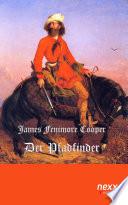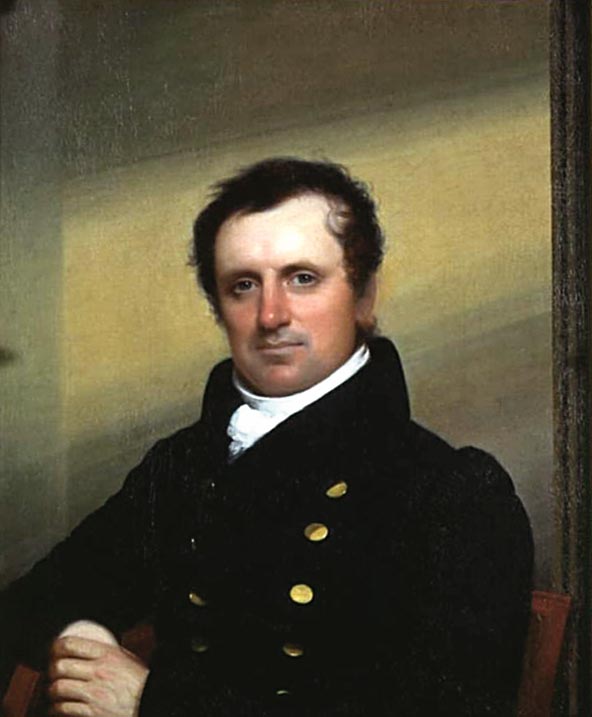Der Pfadfinder, Kap. 28
Original engl.: "Many a man has died with an heroic expression on his lips, but with heaviness and distrust at his heart." - The Pathfinder. Paris 1840. p. 360,
Werk
Die Prärie
James Fenimore Cooper
Der Pfadfinder
James Fenimore CooperJames Fenimore Cooper Zitate und Sprüche
Die Steppe (Fenimore Cooper's ausgewählte Romane, 6. Band, Neue Ausgabe), Sauerländer Frankfurt/Main 1839, 29. Kapitel Seite 375, )
Original engl.: "Patience is a virtue in an Indian, and can be no shame to a Christian white man." - The Prairie. London 1836. p. 369,
James Fenimore Cooper: Zitate auf Englisch
“History, like love, is so apt to surround her heroes with an atmosphere of imaginary brightness.”
Quelle: The Last of the Mohicans (1826), Ch. 18
“tis hard to live in a world where all look upon you as below them.”
Quelle: The Deerslayer
The Pilot: A Tale of the Sea http://www.amazon.com/The-Pilot-A-Tale-Sea/dp/1490555811 (1829); Preface
The Pilot: A Tale of the Sea (1823)
Journal kept by Cooper from January to May 1848
Correspondence of James Fenimore-Cooper (1922)
Quelle: Oak Openings or The bee-hunter (1848), Ch. XXI
Quelle: Oak Openings or The bee-hunter (1848), Ch. XI
“It is better for a man to die at peace with himself than to live haunted by an evil conscience.”
The Last of the Mohicans (1826), Ch. 8
“Tis grand! 'tis solemn! 'tis an education of itself to look upon!”
The Deerslayer (1841), Ch. 6
A Letter to His Countrymen (1834)
The Lake Gun http://www.gutenberg.org/files/2328/2328-h/2328-h.htm (1851)
Preface
The Wing-and-Wing (1842)
The Sea Lions or The Lost Sealers (1849)
Journal kept by Cooper from January to May 1848
Correspondence of James Fenimore-Cooper (1922)
The Sea Lions or The Lost Sealers (1849)
Preface
Oak Openings or The bee-hunter (1848)
The Sea Lions or The Lost Sealers (1849)
Quelle: The Sea Lions or The Lost Sealers (1849), Ch. XII
Quelle: Oak Openings or The bee-hunter (1848), Ch. XVI
“Those families, you know, are our upper crust—not upper ten thousand.”
The Ways of the Hour (1850), Ch. 6
The Crater; or, Vulcan's Peak: A Tale of the Pacific http://www.gutenberg.org/files/11573/11573-h/11573-h.htm (1847), Ch. XXX
The Pilot: A Tale of the Sea (1824); Preface
The Pilot: A Tale of the Sea (1823)
